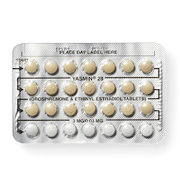If you’d like to stop your birth control and try to get pregnant, you can get pregnant pretty quickly after stopping most methods.
If you’re just not vibing with your choice of birth control, it might be time to switch things up! Before you do, ask yourself some questions to make sure you know what’s not working and what you might want in a new method. Thinking about why you want to switch methods and what your needs are going forward will help you figure out next steps that work for you.
If you’d like to stop your birth control and try to get pregnant, you can get pregnant pretty quickly after stopping most methods.

